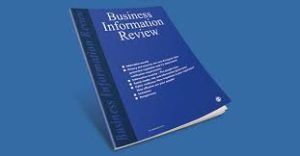Exploring the Impact of Teacher-Student Relationships on Academic Engagement
Teacher-student relationships shape students’ academic engagement and overall educational experience. The quality of these relationships can significantly impact students’ motivation, self-esteem, and achievement. This research proposal aims to investigate the impact of teacher-student relationships on academic engagement, focusing on understanding the factors that contribute to positive relationships and exploring strategies to enhance these relationships in educational settings. By examining the existing literature, exploring key concepts and ethical implications, and proposing appropriate approaches, this study seeks to contribute to the field of education and inform educational practices.
Research Question:
What is the impact of teacher-student relationships on academic engagement, and how can these relationships be fostered to enhance student motivation and achievement?
Teacher-Student Relationships; Rationale and Literature Review
The significance of teacher-student relationships in educational contexts must be considered. Numerous studies have demonstrated that positive relationships between teachers and students increase student engagement, academic motivation, and overall academic success. Conversely, negative or strained relationships can impede student learning and contribute to disengagement. Thus, understanding the factors that influence the development of positive teacher-student relationships is crucial for creating effective learning environments.
The literature reveals several key factors that contribute to positive teacher-student relationships. First, communication and mutual respect between teachers and students are foundational to building strong relationships. When students feel valued, heard, and supported by their teachers, they are likelier to engage actively in learning. Additionally, teacher warmth, approachability, and empathy play vital roles in fostering positive relationships. Teachers who demonstrate care, understanding, and compassion create a safe, supportive environment that promotes student engagement and academic success.
Furthermore, the literature emphasizes the importance of teacher-student rapport and trust. Students who perceive their teachers as trustworthy and approachable are more likely to seek guidance and support, leading to increased academic engagement. Additionally, the role of teacher expectations and instructional practices in shaping teacher-student relationships should be noticed. Teachers with high expectations for their students, provide meaningful feedback, and employ effective instructional strategies tend to establish more positive relationships, positively influencing academic engagement.
Ethical Implications: Teacher-Student Relationships

As with any research involving human participants, conducting a study on teacher-student relationships raises ethical considerations. Respecting participants’ autonomy, ensuring confidentiality, and minimizing potential harm is crucial in ethical research practices. In this study, ethical implications arise regarding consent, privacy, and the potential for emotional distress when discussing sensitive topics related to student-teacher relationships.
To address these ethical concerns, the study will prioritize obtaining informed consent from all participants, including teachers, students, and potentially parents/guardians. Participants will be provided with detailed information about the study’s purpose, procedures, potential risks and benefits, and their right to withdraw at any time. Confidentiality measures will be implemented to protect participants’ identities and personal information.
Additionally, the study will employ strategies to minimize potential emotional distress. This includes providing support mechanisms for participants, such as access to counseling services, and ensuring the research process is conducted sensitively and supportive. The research ethics approval form (RESC) will thoroughly address ethical considerations to ensure compliance with ethical guidelines and standards.
Approaches to Address Ethical Implications

To address the ethical implications, the study will employ several approaches. Firstly, a rigorous informed consent process will be implemented to ensure participants fully understand the study’s purpose, procedures, and potential risks and benefits. Clear and concise consent forms will be developed, allowing participants to provide voluntary and informed consent.
Confidentiality will be maintained by anonymizing participants’ data and ensuring no identifying information is included in the analysis or reporting. Data storage and management protocols will be followed to ensure the security and privacy of participants’ knowledge.
Moreover, the research team will receive training on ethical research practices, including sensitivity to potential emotional distress and maintaining participant confidentiality. This training will enable the researchers to conduct the study ethically and responsibly.
In conclusion, to Teacher-Student Relationships
This research proposal explores the impact of teacher-student relationships on academic engagement. By critically evaluating the research question, reviewing relevant literature, considering ethical implications, and proposing appropriate approaches, this study intends to contribute to the existing body of knowledge on teacher-student relationships and inform educational practices. Understanding the factors that contribute to positive relationships and implementing strategies to enhance these relationships can lead to improved academic engagement, student motivation, and, ultimately, student success. Through rigorous research and adherence to ethical guidelines, this study seeks to make a meaningful contribution to the field of education.
References for Teacher-Student Relationships
The Importance of Teacher-Student Relationships for Academic Achievement” – In this research paper published in the Journal of Educational Psychology, the authors explore the impact of teacher-student relationships on students’ academic success. Link: https://doi.org/10.1037/a0014232
“The Importance of Teacher-Student Relationships for Academic Achievement” – This article discusses the significance of positive teacher-student relationships in enhancing students’ academic success. It explores the impact of such relationships on students’ motivation, engagement, and overall well-being. [Link: https://www.ncbi.nlm.nih.gov/pmc/articles/PMC6425311/]





